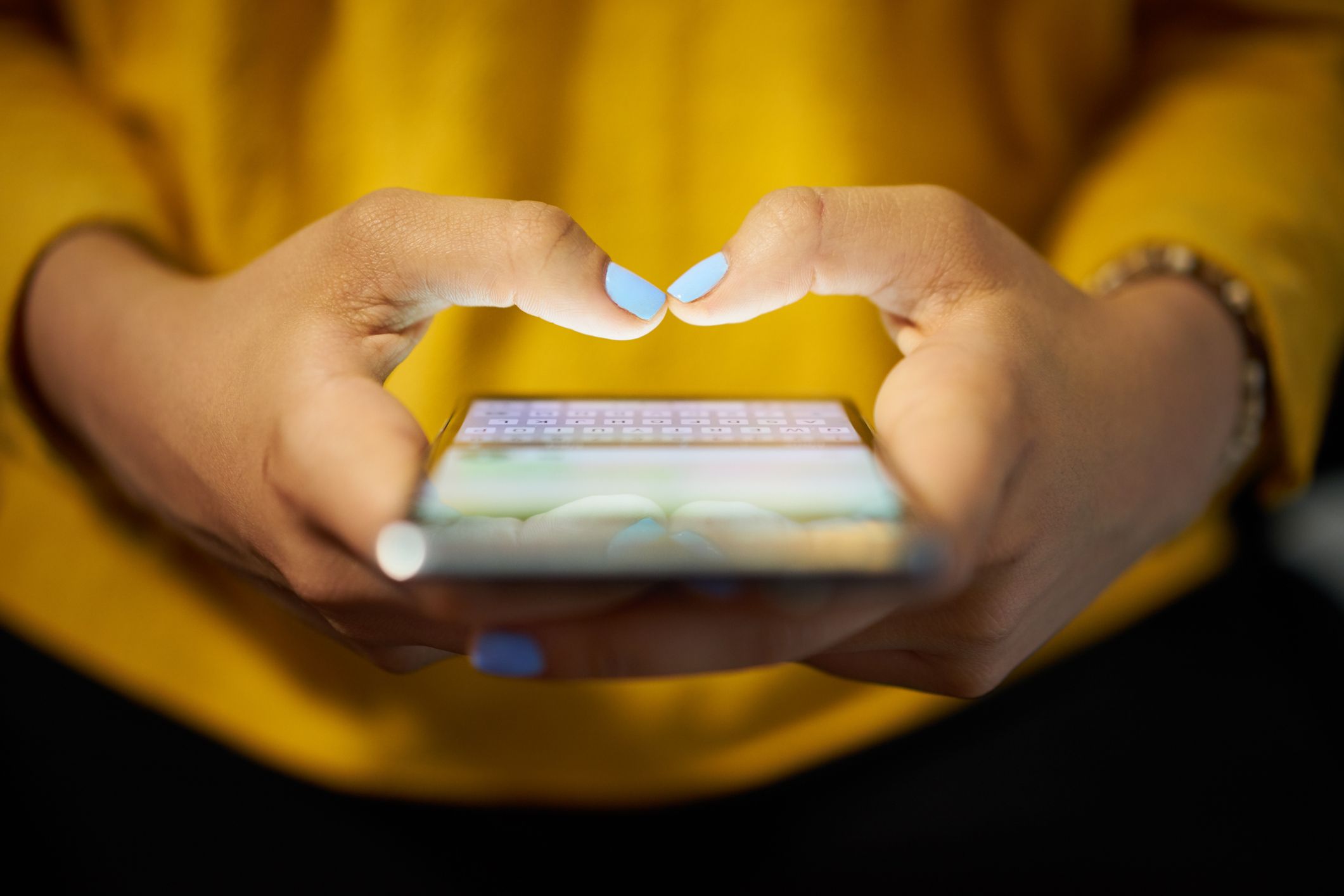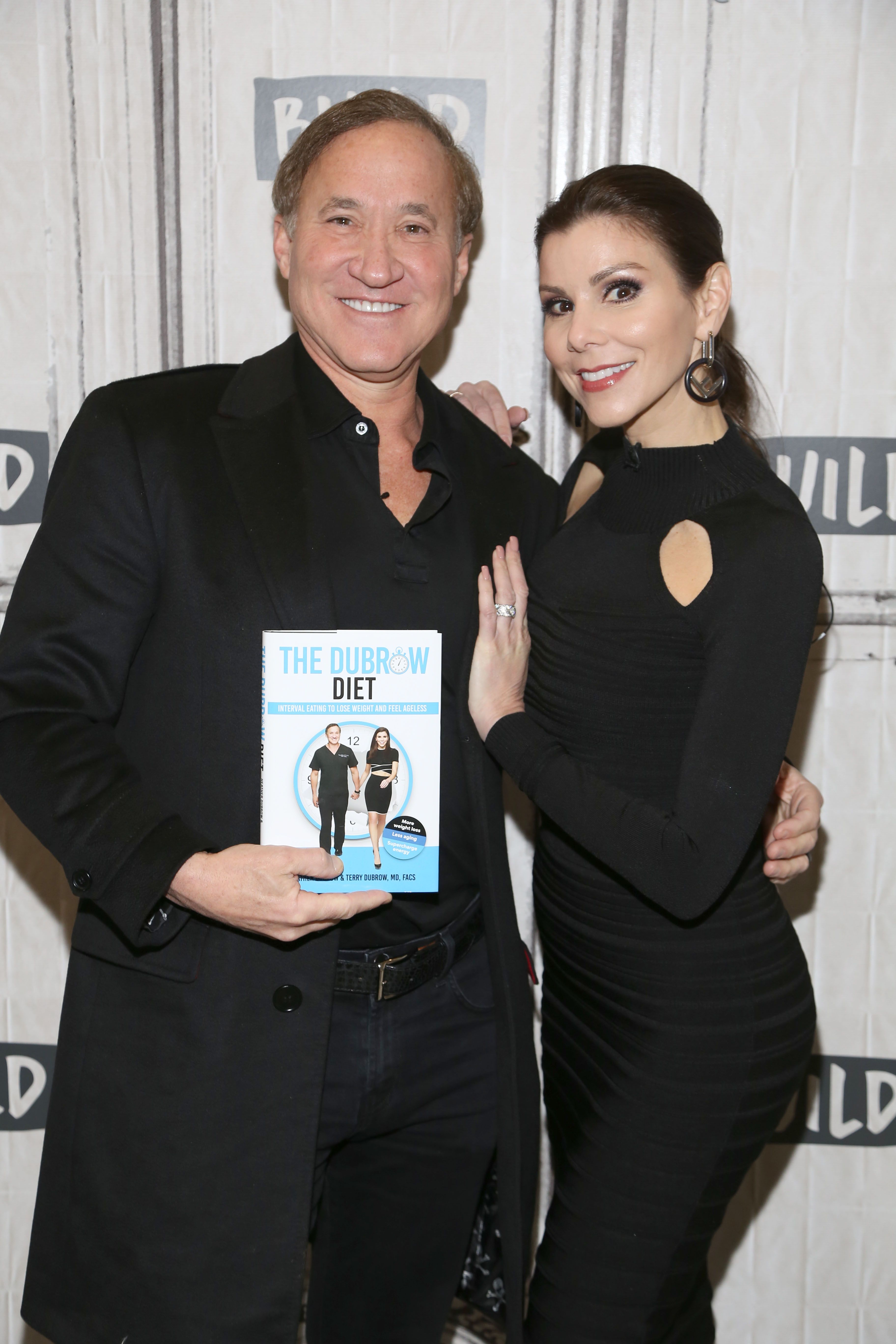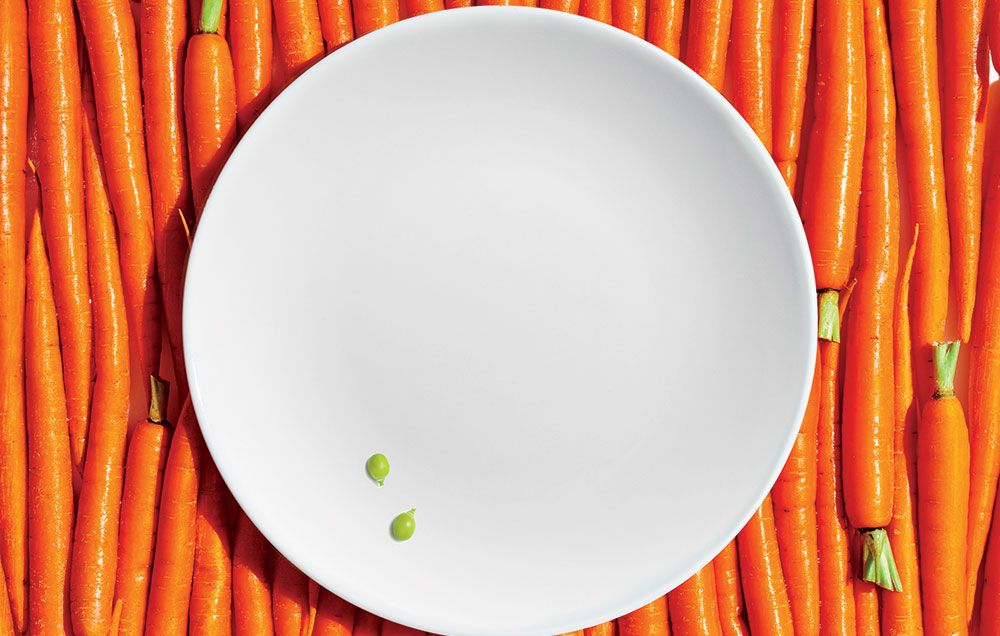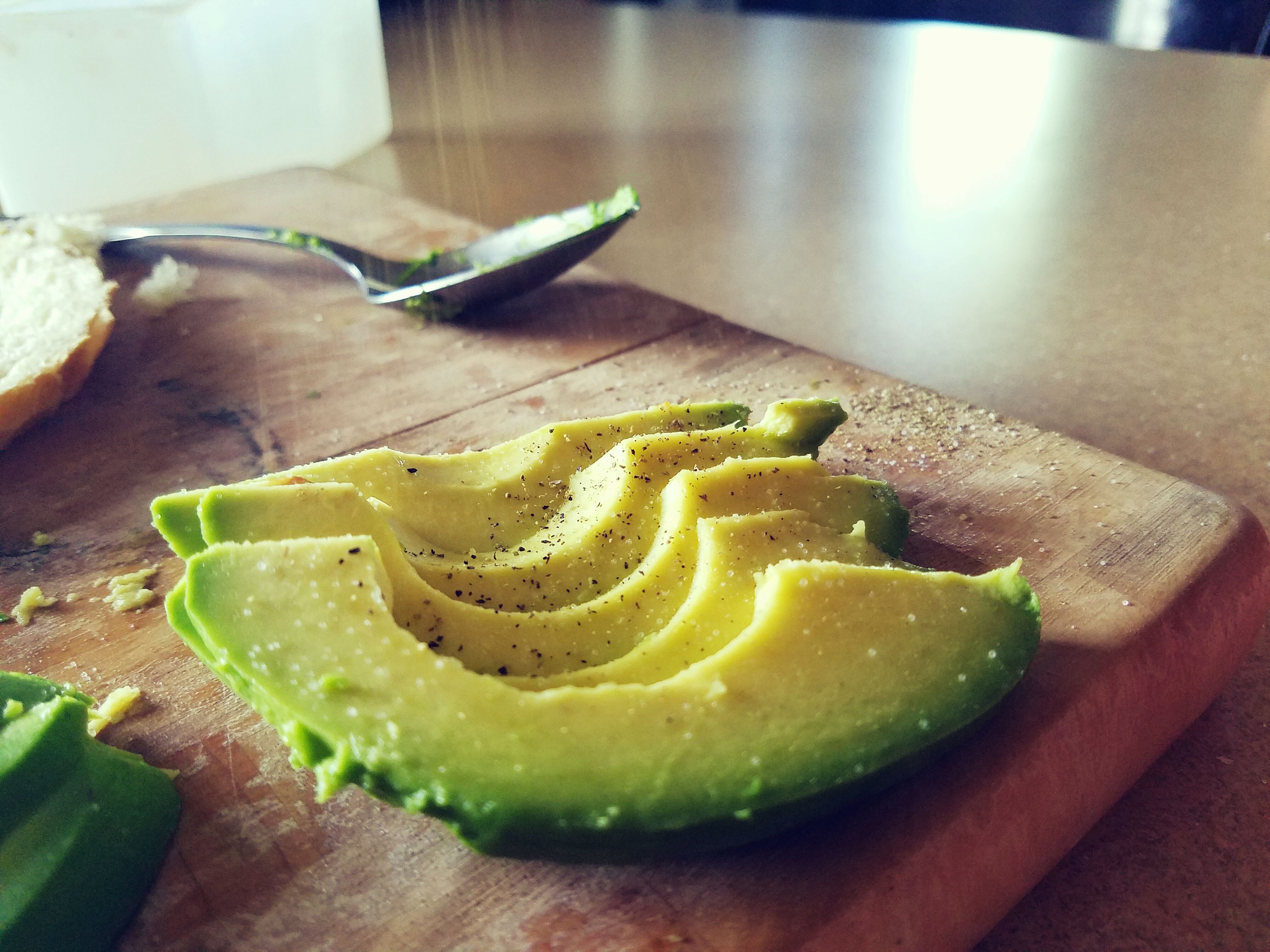What Is The Noom Diet\u2014And Can It Help You Lose Weight?
Oh, to be a celebrity—fame, fortune, and the ability to have personal trainers and nutritionists on speed dial when you want to lose a few pounds. For mere mortals, however, weight loss isn’t quite so easy. (Actually, that’s generous—losing weight is hard AF.)
That’s where Noom comes into play—a fitness and weight-loss program. But, uh, what exactly is it? And what makes Noom any different than any other weight-loss program or app out there? Here’s my personal take on Noom, as a registered dietitian. The short version: I see real potential with the Noom weight-loss app, and a few cons for some groups of people—so read on.
First, what is Noom exactly?
Noom claims to be the “last weight-loss program you’ll ever need,” according to its website. It’s like having a trainer, nutritionist, and health coach all in one place (e.g., your phone).
Where Noom differs from other apps, however, is its focus on making behavioral changes surrounding dieting and weight loss. The app will show you, for example, the best foods to eat (it rates them on a scale from green to yellow to red). While I typically don’t like to label certain foods as “red” or “bad”—I do think Noom does a good job of not instilling fear around certain foods, rather taking an educational approach to help its users understand how to make balanced choices and why they recommend certain foods over the others. The app also prompts you to read tidbits on healthy habits and rate your motivation—and will quiz you after.
The app may sound kind of tedious (who has time to read and take quizzes throughout the day?), but it could be the key to successful, sustained weight loss. The education elements that the app includes, like how it teaches you about calorie reduction and carbohydrate intake, as well as how to increase physical activity, is really helpful and crucial information if you want to lose weight in a sustainable way.
It also has the ability to provide support and feedback from others doing the program—all 45 million of them. And it’s not just message boards or automated blurbs: You can actually talk to others in a group chat in real time.
(It should be noted, too, that Noom provides users with “health and wellness coaches” that are approved by the National Consortium for Credentialing Health & Wellness Coaches—though that doesn’t necessarily mean they are trained professionals like registered dietitians or certified trainers.)
You can also receive rewards when you change your behaviors, plus you have access to social support—and positive reinforcement and accountability coaching have both been show to help with long-term goal success.
Here’s what happens when you download the Noom app.
When you first download the free app, Noom asks how much weight you’d like to lose, how fast you’d like to lose it (on a scale from tortoise to hare), plus your age, height, and current weight—all pretty standard diet-tracking stuff.
From there, the app asks for permission to access your smartphone’s Health app. It automatically logs your exercise, but asks you to log everything you eat during the day (the app has a database of foods to choose from). Noom actually takes those calories and subtracts them from a daily calorie goal (depending on those factors you shared with it earlier) to show you how many calories you have left in the day.
Noom also tracks your actual weight loss. You enter your weight each week, and the app make a graph of your progress.
How much does Noom cost?
There is a free version, although Noom also has paid versions (it’s about $59 a month, but you can buy multiple months at the same time for less money). In the paid version, you fill out a more detailed questionnaire about your lifestyle and health goals, plus what might be holding you back from achieving your weight-loss goals.



But it’s not all questions: Noom’s paid app also relies heavily on an education component—helping you realize, for example, that your salad is less calorie-dense and more nutrient-dense, instead of just telling you salad is a healthy option.
Basically, it’s a diet app that wants you to learn why you want to lose weight and how to do it, instead of just helping you blindly drop pounds.
What does Noom actually do to help with weight loss?
The pros: Noom helps you stay accountable and make wise choices on your own. So, Noom doesn’t exactly give you a daily menu or have a specific food program that you follow. Instead, it asks you to input everything you eat in daily food logs, and it uses traffic light colors (red, green, yellow) to help you understand how healthy you’re eating.
Interested in trying Noom? Click here
Green foods, like fruits and veggies, are the least calorie-dense and contain the highest concentration of healthy nutrients. Yellow foods have more calories but aren’t necessarily bad for you—think: meat and dairy. Red foods, like processed foods and desserts, are the most calorie-dense, and the least nutrient-dense.
Red foods aren’t off-limits; the app just aims to make you aware that they’re high in calories and less filling, so you can be aware of what that means for staying within your daily calorie goal.
So, will you lose weight on Noom? It can definitely help—but you have to really commit.
It’s definitely possible, but it really comes down to whether you’ll actually use it consistently (more on that in a minute).
FWIW, according to a 2016 study in the journal Scientific Reports, Noom can help with weight loss. Researchers analyzed data from 35,921 Noom app users over the course of about nine months and found that 77.9 percent reported they lost weight. One interesting tidbit: Those who neglected recording their dinner in the app lost less weight than those who recorded their dinner regularly.
So while the app can definitely help you lose weight—you have to actually use it, as I mentioned. If you really take advantage of the app daily and put in data that’s honest and truthful, the Noom program should help you lose weight. In other words, listen to the experts and follow the plan and you’ll squash some goals.



The ideal user is probably someone with a busy lifestyle (hi, almost everyone on the planet!). And those who enjoy virtual support from like-minded peeps (shout-out to millennials) may also benefit.
Personally, I like that the app is realistic about long-term results and doesn’t try to get its users to conform to a restrictive or fad-diet style of eating (e.g. keto, gluten free, raw, etc.).
Noom also helps users bring a sense of awareness to what they’re eating throughout the day. That’s usually the first step to sustained weight loss—focusing on what you’re eating—without judgement or without labeling your eating habits “good” or “bad.” Then, once you have a sense of awareness, you can tackle the reason you might be eating when you’re not hungry, or why you turn to food out of stress, and then make any adjustments as needed.
What are the downsides to Noom?
I see a few for some groups of people. If you have an underlying medical condition that prevents you from shedding weight, well, the app won’t know that—and that might leave you frustrated.
I would suggest speaking with your doc before you try it (as you should before jumping into any weight-loss program). Then you’ll know if you have an issue like insulin resistance, thyroid problems, or hormone imbalances, and you can address those first.
Another thing: It’s also pretty pricey, at over $50 per month—which makes it a little less than the most expensive Weight Watchers plan, for comparison, but definitely more expensive than just counting calories on your own.
Remember it is what it says it is, a weight-loss app. Therefore if you have struggled with obsessing over your weight in the past or have a history of eating disorders or disordered eating habits, it may be best to stick with one on one coaching with a registered dietitian.
Also—obvious alert—but the app isn’t going to head to the grocery store and cook for you (or drive you to the gym), so you have to take some initiative to actually follow through with the healthy habits suggested.
How is Noom different than Weight Watchers (WW)?
The are similar in that they both use a food “ranking” system (with WW, it’s a points system, whereas with Noom, it’s a color system) to group foods as more and less nutritious. But Noom arguably gets more at the psychological factors behind weight management, and helps you explore why you have certain eating habits and choose the foods you do. WW, on the other hand, boasts a strong community that offers lots of accountability and external support. Noom is also a little bit pricier.
Which one is better for you? It ultimately depends on your personality and budget. Consider doing a consultation with a dietitian to help you choose, or ask friends and family who may have experience with the two programs.
What do Noom reviews say?
The reviews are mostly positive. Mary Leuthauser, 30, previously told WH that Noom is what finally kickstarted her weight-loss journey, and she lost 40 pounds using the app. “It taught me how to eat again, as silly as that may sound.” Leuthauser also explained that the program taught her how to choose foods that “fueled my body instead of just filled me up.”
But she really stuck to the app and took advantage of all the educational resources. “Once I finished my course with Noom, all of the habits I learned actually stuck.”
https://www.instagram.com/p/B5G-84IHzot/
A post shared by Mary (@mamamar_getsfit)
Siani Peterson, a pediatric nurse in San Antonio, Texas, also uses Noom. She shared with WH: “Noom works for me because it holds me accountable. I use the app, which has a calorie tracker and a step tracker. I’m able to enter in what I eat, and the food log is honestly 90 percent of why I have lost weight. I also like to see how active I am, and it also has a weight tracker that tells me how much progress I’ve made.”
Peterson, who lost 50 pounds in seven months with the app, also added that while you have to hold yourself accountable, Noom was a great additional tool. “I used Noom to take all the guesswork out of eating.”
https://www.instagram.com/p/B_p0Ctwl3vA/
A post shared by Siani Peterson (@nurse_siani)
In the App Store, you can find mostly 5-star Noom reviews, of the diet and the app itself, though a few users didn’t think the diet was realistic at all, that the program wasn’t worth the price, and that the app could be improved. Here are some honest reviews of the Noom program you might want to consider, pulled from the App Store:
“Worth it for me.”
“I was skeptical when I first started the trial. Roughly a month into this program, I have lost almost 10 pounds without much inconvenience. The things I mark it down for are a limited data base when you go to scan in a food to add it to your daily intake.
“I’d have to say that these people are on your case 24/7 to help keep you on track. You also have access to multiple other people who are doing this at the same time you are. I think the message board could be organized in a better fashion, to be more user-friendly and allow you to have access to multiple threads at once without being confused.
“All in all, I’m going to stick with this because it fits into my life at this time. It addresses psychological issues as to why people choose to eat what they eat, and why they overeat the wrong things. you are given the tools, should you choose to use them, to deal with these situations that affect those of us who have always had a complicated relationship with food.”
“Better than expected.”
“I’ve had good success with the program. It took twice as long as predicted, but then again I didn’t try very hard. In fact, I feel like I did very little and it still worked! The group stuff is great, the goal specialist is ok so long as you keep your expectations in check. The content is excellent. It would be better slowed down and stretched out a bit, so it’s easier to retain. The red, yellow, green ratio for foods doesn’t quite work for vegetarians.”
“Essentially starving yourself.”
“I had really high hopes for this app! You start off with a 2,000 calories budget and then it drops lower and lower. I feel as if Noom wants me to starve myself. I work outside, I am constantly sweating and walking around. I’m going to eat, and I shouldn’t have to feel bad about going over 1,300 calories while eating healthy foods.
“Second of all, they list some foods that are high in nutrition like almonds/peanut butter and oatmeal as ‘red foods.’ This makes me feel like I can’t eat anything, I only have so much time to make something quick and healthy that will fill me up until lunchtime. Overall, I’m really not please with this app!”
”Helped me get back on track.”
“What I liked: the motivation to weigh in, the weight chart, most of the content, and the ability to log exercise. What I thought was pretty good: the calorie-logging function. I have nothing to compare it to short of reading labels and writing on paper, so I don’t know how it compares in simplicity and accuracy with other apps that might be out there. I thought it was pretty easy.
“What I didn’t use [or] find helpful: The weekly check-in from my goal specialist and the group coaching. Once a week I would get asked a generic question by my specialist. They only communicate with you once a week. Also, group coaching on an app is just not for me. I don’t want to be looking at my phone all day and reading other people’s responses and trying to figure out what to say back. That is way too time-consuming. So after the first introduction I never went back to the group. I didn’t have too much weight to lose, I signed up to give me some accountability for what I was eating. It was eye-opening.
“I liked Noom for tracking what I ate and making me think differently. I did it for two months and it helped, I took off the few pounds I wanted to lose and have maintained within a couple pounds. I have to say, when following the program, I was almost always hungry! Losing weight is no joke.”
Ultimately, if you plan on using Noom, you must be ready to commit to the process—the tracking, the community accountability, and the education.
I would really evaluate if you’re ready to make that commitment before downloading it so you don’t start, find you don’t have the time, and feel like you’ve failed, when in fact, it just may not have been the right plan for you and your lifestyle.
Also, just know that different folks respond to plans differently. Some people like having a clear outline of what to eat and why, some people like working face to face with a coach, and some people like doing it all through the convenience of their phone—it really comes down to the individual.
The bottom line: An app isn’t the only way to lose weight or build healthy eating habits, so know yourself and find a plan that works for you.
Source: Read Full Article
